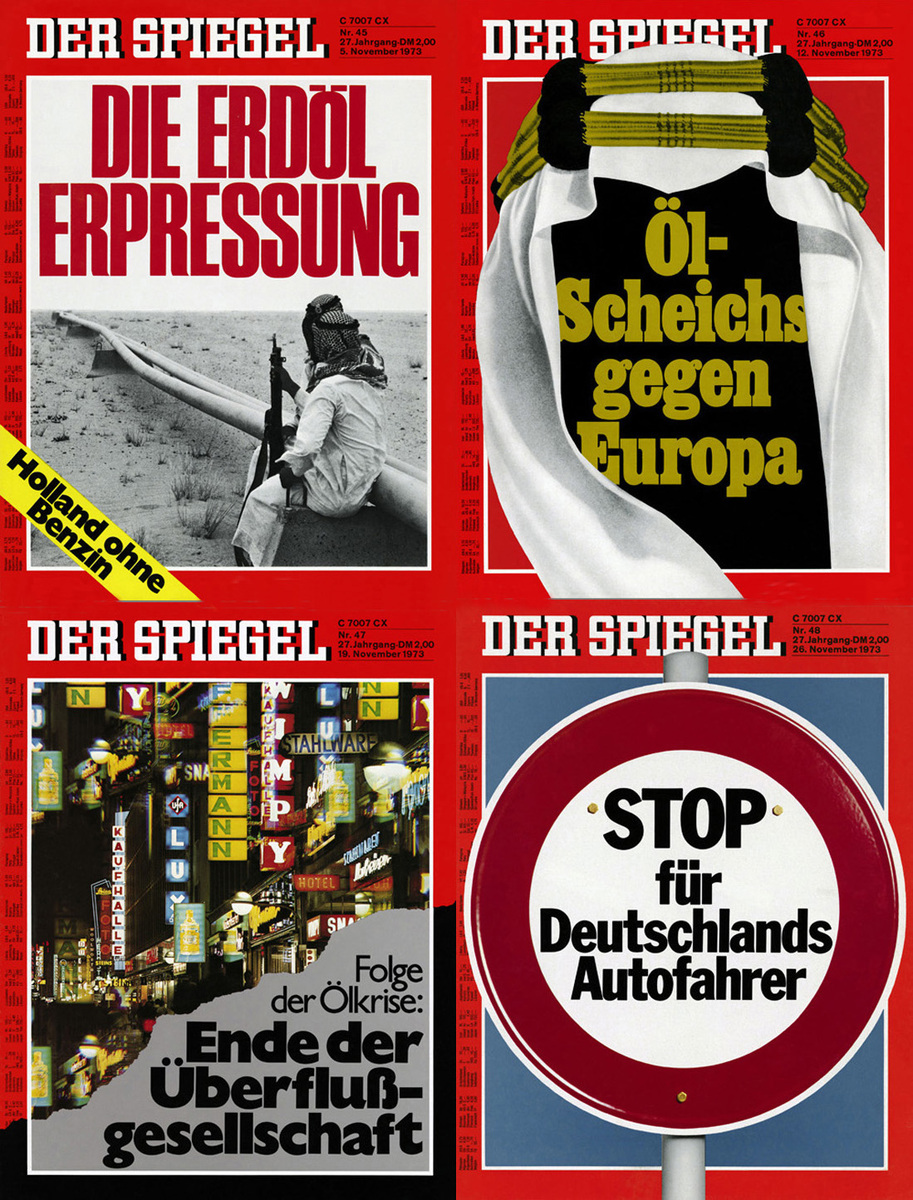Source

Source: Der Spiegel covers (clockwise starting in upper left): November 5, 1973 (no. 45), November 12, 1973 (no. 46), November 19, 1973 (no. 47), and November 26, 1973 (no. 48). Available online at: https://www.spiegel.de/spiegel/print/index-1973-45.html (no. 45); https://www.spiegel.de/spiegel/print/index-1973-46.html (no. 46); https://www.spiegel.de/spiegel/print/index-1973-47.html (no. 47); and https://www.spiegel.de/spiegel/print/index-1973-48.html (no. 48). Republished with permission.